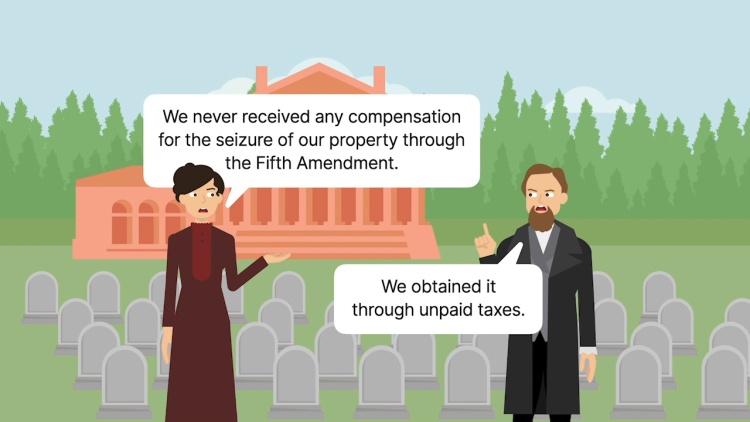United States v. Lee
United States Supreme Court
106 U.S. 196 (1882)
- Written by Robert Schefter, JD
Facts
The United States government purchased property in Arlington, Virginia from the estate of Robert E. Lee’s wife after an alleged failure to pay a $92 tax assessment. The tax commissioner refused a payment offer on behalf of the estate, based on a rule that only the actual owner could pay overdue taxes. The son of Robert and Mrs. Lee (plaintiff) claimed title to the property under a will and filed an ejectment action in state court against two federal officers in charge of the property (defendants). The defendants removed the case to the United States Circuit Court for the Eastern District of Virginia. Even though the United States was not a party to the action, the United States Attorney General filed a motion to dismiss the case, alleging that the United States possessed the property through sovereign and constitutional powers, and that the court, therefore, lacked subject matter jurisdiction. The district court denied the motion, and a jury granted judgment in favor of the plaintiff. The individual defendants and the United States appealed directly to the United States Supreme Court.
Rule of Law
Issue
Holding and Reasoning (Miller, J.)
Dissent (Gray, J.)
What to do next…
Here's why 908,000 law students have relied on our case briefs:
- Written by law professors and practitioners, not other law students. 47,100 briefs, keyed to 997 casebooks. Top-notch customer support.
- The right amount of information, includes the facts, issues, rule of law, holding and reasoning, and any concurrences and dissents.
- Access in your classes, works on your mobile and tablet. Massive library of related video lessons and high quality multiple-choice questions.
- Easy to use, uniform format for every case brief. Written in plain English, not in legalese. Our briefs summarize and simplify; they don’t just repeat the court’s language.





